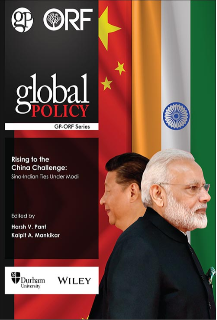The Supreme Court saved the day for Indian democracy when it struck down the appalling Section 66A of the Information Technology Act last week.
The apex court was sagacious, but the real heroes were those young Indians like Shreya Singhal who petitioned the Supreme Court, and Faisal Farooqui of Mouthshut.com, who campaigned against the law.
Interestingly, they were taking up the cause of those who had angered politicians, who in turn had forgotten that they were harassing the very citizens of India that they are meant to represent. They also forgot that they were not their subjects or their vassals. They were the ones who voted them in making the politicians public servants.
For whatever reason, it seems that Parliament never seriously debated this issue. But perhaps all parties wanted the restrictions of Section 66A to be around. It is believed that only three Lok Sabha MPs opposed 66A, the remaining 540 did not. In the Rajya Sabha, finance minister Arun Jaitley did point out flaws in the law and the vague language used in it. In an exhibition of synchronised disdain, this basic tenet of our Constitution - individual freedom - was disregarded in Parliament and the Article was voted in without debate.
It was a question of preserving and controlling power by controlling free speech through intimidation. In Uttar Pradesh alone, Section 66A was invoked in 399 cases.
Section 66A is more in the domain of action by law enforcement agencies than in that of intelligence agencies.
Intelligence and security agencies would be more concerned with Section 69A, which deals with the Centre's power to block content that has been retained. It is not the business of intelligence agencies to seek to take down postings on Facebook or Twitter. If at all, they would allow such suspect sites to run so that they can follow them for gathering information about a possible intelligence, terrorist or espionage operation.
Facebook with a veil
Ayear ago, India had one million Facebook users. In the first six months of 2014, Facebook restricted access to nearly 5,000 pieces of information, the highest anywhere in the world, in response to requests from the government of India. The grounds were usually hate content or criticism of a religion. The figure went up to 5,832 pieces of content on Facebook in the last six months of 2014.
We live in the cyber age with information and data travelling in milliseconds and stored in terabytes. The extent of Indian intelligence surveillance of the internet and social media is nowhere near that of its American counterpart. We have neither the resources nor the global threat that the Americans see for themselves and their interests.
The National Security Agency (NSA) of the US taps into data hubs of Google and Yahoo for email data.
About five billion emails are downloaded every day, apart from the NSA listening into phone calls and covering all Americans and collected records of millions of US customers of America's largest telecom providers.
'NSA whistle-blower' Edward Snowden showed a few years ago how easy it was to transfer mountains of classified data in a flash.
Intelligence agencies would have different priorities from those of law enforcement agencies. In the Age of Digital Jihad, 21st-century terrorism is vastly different from that of the previous century. Terrorists use all possible technology available commercially and countering this requires international cooperation. It requires total surveillance of the medium of communication because there is no way to pick out the suspect in the middle of all those fake names, changing names, locations, multiple accounts et al. Delays can be fatal.
Currently, most of India's law enforcement and even counterterrorism forces would be innocent of the intricacies of the web and internet.
It is unfair to expect them to be able to deliver unless they have been trained to handle this. Tracking and preventing terrorist attacks was always a counter-terrorist's nightmare. Today, it is an unending nightmare. And, apart from the other conventional threats and needs to ensure security and preservation and enhancement of the national interest, the extent of terror threats to India is well known.
Besides, how do intelligence agencies pick up the lone terrorist who operates from his computer?
Lose some, to win some
There is, thus, no escaping state surveillance. This is going to be the new world where one of the main methods of collection of intelligence is to electronically listen to every conversation till the suspected terrorist can be separated from the innocent. Terrorism follows no rules and is not likely to disappear suddenly.
Counterterrorism can be harsh. But it is required to follow some rules. We need state-of-the-art intelligence. But we also need the freedoms. We will have to give up some of them to preserve other freedoms. It is always going to be a difficult choice.
India has to get ready for these enormous challenges that will emerge as our economy, our regional role and, to some extent, our global role and interests grow.
(The writer is an Advisor to Observer Research Foundation, Delhi)
Courtesy:The Economic Times
The views expressed above belong to the author(s). ORF research and analyses now available on Telegram! Click here to access our curated content — blogs, longforms and interviews.




 PREV
PREV



